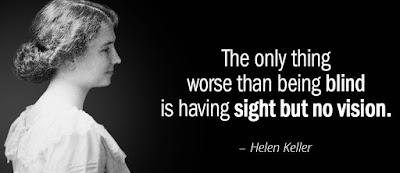Themes from the Allegory of the Cave
1. The Original Conspiracy Theory: What is reality?
From Naive Realism - the default belief that how things appear is exactly how things are in themselves - to Platonic Idealism / Transpersonalism / Multidimensionality / Simulation Theory
2. What is mental slavery?
Prisoners: Not Free (physically, mentally, spiritually, cognitively, politically)
Puppet - a hollow, artificial copy of something that is controlled remotely
Human Society as a locus of domination, coercion and repression.
Born Free but everywhere in Chains
Fixed attention = mind control
3. Why does enlightenment take so long?
Resistance to Healing, to Truth
Awakening as a Process, Not All At Once
True Happiness - Being Awake to the Knowledge of Self and Reality
4. Why is human society a joke and not a tragedy?
Escaping from Idolatry (the idols of the Cave - honors, riches, material abundance, physical pleasures) - why Philosophers don’t like to ‘mind other people’s business’ All conflict as a “fight over shadows”, over nothing, a form of psychopathology.
5. Why can philosophy make you even more confused?
Two Kinds of Blindness - (a) going from ignorance to truth and (b) from truth to ignorance.
A healthy or just soul will experience ‘cognitive dissonance’ living in an unhealthy society.
6. Does conventional schooling really help you to think?
Two Kinds of Education - (a) “The Banking Model” (depositing information in the student’s mind to be withdrawn at a later date, vs. (b) Socratic aka Spiritual Midwifery, or “the turning of the soul away from Becoming and towards Being. (Discipline as the Art of Self-Remembering.)
7. Why would you leave paradise to deal with other people’s bullshit issues?
Compelling the Philosophers to ‘mind everyone else’s business’ - persuade them to leave Elysium to rule the city - the best regime as the one where the rulers rule reluctantly.
8. The Method of Truth for Philosophers
Dialectic as the proper method of education for philosophers
Rubbing two sticks (opinions) together to start a fire (illumination)
How dialectic can turn porto-philosophers into sophists - nihilistic, narcissistic, materialistic, slaves of conventional wisdom.
Interpretations of the Allegory
9. Social Conditioning Interpretation - The Cave represents standard social and political programming which all societies use to control their populations. Would a just society avoid the need for programming? Not if it is Plato’s kallipolis.
10. Epistemological/Psychological Interpretation - The Human Mind itself projects the holographic simulation which is material reality; quantitaive/scientific inquiry can free us from the naive realism of our senses and common sense to see the strange reality of objective truth.
11. Metaphysical Interpretation - The cave world of Becoming (space/time matrix of physical entities) versus true reality (Being - timeless realm of Absolute Truth. The human mind/soul as timeless/changeless entity remembering its true nature.
12. Modern variant: Computer simulation Model - The Matrix: the physical universe as a computer simulation (e.g. error correcting computer code discovered in the equations describing super string theory) Support for the Simulation Hypothesis:
A. Nick Bostrom’s statistical argument
At least one of three possibilities is true: 1) All human-like civilizations in the universe go extinct before they develop the technological capacity to create simulated realities; 2) if any civilizations do reach this phase of technological maturity, none of them will bother to run simulations; or 3) advanced civilizations would have the ability to create many, many simulations, and that means there are far more simulated worlds than non-simulated ones.
B. James Gates discovery of Computer Code in String Theory Equations
Dr. S. James Gates, Jr., a theoretical physicist, the John S. Toll Professor of Physics at the University of Maryland, and the Director of The Center for String & Particle Theory, is reporting that certain string theory, super-symmetrical equations, which describe the fundamental nature of the Universe and reality, contain embedded computer codes. These codes are digital data in the form of 1's and 0's. Not only that, these codes are the same as what make web browsers work and are error-correction codes! Gates says, "We have no idea what these 'things' are doing there".
13. Spiritual/Transpersonal Interpretation - The Perennial Wisdom Perennial Wisdom/Transpersonal Psychology (Aldous Huxley)
• 1. All that exists is dependent upon the divine ground.
• 2. Human beings can realize the existence of the divine
ground by transrationally uniting with it.
• 3. Humanity possesses a double nature, both an egoic
contracted self and a timeless spirit.
• 4. The purpose of life on earth is to identify with one’s
spiritual nature and achieve liberative unity with the
divine ground.
14. Nondualistic Interpretation - The Cave is an illusion created inside our Transpersonal Mind, and so doesn’t exist. We are free beings dreaming that we are prisoners in a cave, in order to hide from / detach from our own guilty thoughts. Enlightenment comes through the release of Judgment.





